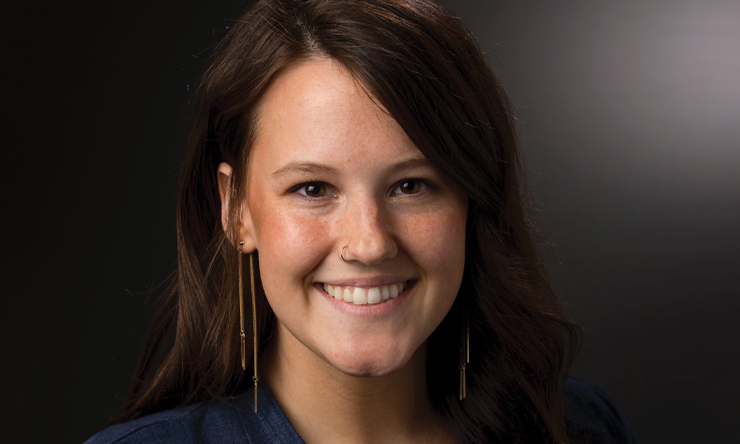Union Theological Seminary professor Cornel West, PhD, is an author of 19 books, including 1993's seminal "Race Matters," and is a noted television commentator on the subject of race. West will present the 2012 Baecke Endowment for the Humanities Lecture at 7:30 p.m. Sept. 28 at the Rogalski Center. The event is among the first presentations in the year-long St. Ambrose University project, "Race Matters."
Ambrosian: Could you assess how race matters in America in 2012? Have we progressed since 1992? Regressed since 2008?
Cornel West: "On the one hand, of course, we have made some magnificent progress and it is undeniable. It's not just a matter of Barack Obama in the White House. It's at the social and the cultural level in terms of the wonderful relations that often are invisible in our society between people of different colors and classes and sexual orientations.
"So there is cultural progress and symbolic progress in terms of the White House. And beyond symbolic, in terms of that president being accepted as a president, like anybody else.
"And so we have on the one hand this wonderful upbeat side. And on the other hand, we've got the underside, the night side. There is always the creeping xenophobia, which is to say stereotypes of too many people are still in place, too many people accepting them. At the economic level, we've got the new Jim Crow and the prison-industrial complex, escalating levels of poverty, escalating levels of inequality and how that brings out the worst in all of us. We usually are more inclined to scapegoat the most vulnerable rather than confront the most powerful.
"So, it is the best of times. And in some ways, it's not the worst of times, but very, very tough, tough times."
Ambrosian: Does Barack Obama's election still stand as a transformative moment? And would defeat in November make that moment less significant?
Cornel West: "There's no doubt that Nov. 4, 2008 will forever be a transformative moment. Because it is just in some ways the unthinkable - a black man being president of the United States.
"Now, ironically, a loss by Barack Obama based on principle and policy would actually constitute the degree to which having a black man as president is no longer a novel thing. And therefore like any other president, you are voted up or down based on principle and policy."
Ambrosian: How would we know that was case?
Cornel West: "It would have to be manifest in the process. If, in the electoral process up until Election Day, the racism became more explicit, xenophobia became more pervasive, then we would realize that was a major factor in him losing. Then it wouldn't be based on principle and policy. It would be based on racism.
"... But you can imagine it also goes the other way, too. Because I think anti-Mormon prejudice is just as evil as racism, anti-Semitism or anti-Arab racism. And if the only thing that causes Romney to lose is an anti-Mormon prejudice, I still think we have a problem."
Ambrosian: As somebody who has spent his career in higher education, are the costs of an education working in favor of racial equality or are they standing in the way?
Cornel West: "Significant numbers of institutions are doing wonderful things on the ground for actual students. And they are doing it oftentimes against the grain. But I do want to accent the degree to which teachers, staff and others at a variety of different colleges and institutions are doing wonderful things. (In raising) awareness of equality - racial equality, gender equality - they are doing wonderful things.
"But I think because there has been a crisis in the budgets of state governments - many schools, of course, supported by public funds coming out of state legislatures, state governments - there has been not only a decline in the resources available, but subsequent to that decline there has been a relative inability of more and more talented working class and poor students to even be able to go to these institutions. Because of the budget crisis, the increase in tuition, the tax loans that become almost a kind of albatross around your back forever because you can't declare bankruptcy.
"So, on the one hand, I want to accent the magnificent and gallant efforts in colleges and universities, because they are still wonderful places to be for people, especially young people, in terms of talking about equality, wrestling with inequality, getting to know students from different walks of life and accenting their humanity as opposed to simply their color. But on the other hand, institutionally speaking, structurally speaking, it is a profound crisis. California, of course, is now the poster state of what we are talking about, being now 47th in education when it used to be at the top. UC-Berkeley, our greatest public university, is now in such deep crisis it's even hard to describe without tears in your eyes. But California in a way is the peak of an iceberg."
Ambrosian: What are the essential questions St. Ambrose should ask and attempt to answer as we spend an academic year investigating the topic of race in America?
Cornel West: "What I will be trying to highlight is the way in which any serious discussion about "Race Matters" in America has to deal with is what kind of person do you really want to be? What kind of community, what kind of nation, do we really want to be? In terms of our ethical content, our moral substance and our democratic character. So in that sense, to talk about race and to talk about "Race Matters" is to raise the most fundamental questions of any humanistic education."
Ambrosian: Regardless of where we stand now in a pretty polarized political environment, when you look at the generations coming behind us, do you see cause for genuine hope and belief that at some point we can look beyond race? Particularly, the way hip-hop music has been a uniting force?
Cornel West: "Absolutely. (Hip-hop is) the lingua franca of the youth culture. I think you're right about that. We do have to acknowledge the degree to which the younger generation experiences race. In not only a different, but a much better way than older generations.
"Growing up in the 1950s or going to school at Princeton or St. Ambrose in the 1950s is qualitatively different than going to school at Princeton or St. Ambrose in the early part of the 21st Century. In regards to issues of race, it is almost night and day in that sense. And that is part of that progress that cannot be denied.
"At the same time, racism takes on various forms, even in the 21st Century, which need to be examined, which need to be tested and called into question. Now whether that takes us beyond race, that is something else. You see as a Christian, I don't believe in paradise on earth or heaven on earth. I think as long as there are human beings around, there's going to be some forms of prejudice and some forms of xenophobia. I think that we are the kinds of creatures with fears and anxieties, with fear of death, that without courage and vision will fall back on some form of ugly prejudice. And that's why it is a perennial struggle. It's an endless struggle to be more compassionate, more critical, more decent and try to accent the dignity of others."
Ambrosian: Is that the kind of progress that a small Catholic liberal arts university can make by taking on this particular topic?
Cornel West: "Absolutely. And further I would say St. Ambrose has already manifested progress if my earlier claim was right about what it was like to be at St. Ambrose in the 1950s. You can imagine to go back 50, 60 years at St. Ambrose and look at what is going on at St. Ambrose now? A lecture series on "Race Matters?" That's progress, brother."
Ambrosian: Well, we would point out that St. Ambrose University is part of a coalition that presents an award called the Pacem in Terris Peace and Social Justice Award and Dr. King was one of its earliest winners (in 1965).
Cornel West: "And he was actually there at St. Ambrose? You've got to be kidding? Wow. That was right after the Nobel Prize.
Ambrosian: And Bishop Desmond Tutu was also a winner and he was on campus to accept.
Cornel West: "So you have all been on the cutting edge for a long time. See, well, when you have that kind of progress in your past, then you know it's possible. And that becomes wind at your back. It's just that, again, knowing that even in acknowledging that progress, that betterment, that amelioration, we not only always have work to do, I just don't think we can ever talk about some kind of paradise, some kind of utopia in this time and space.
"I look forward to coming there. I am very blessed and honored to be starting this discussion."
News
Share This Story



